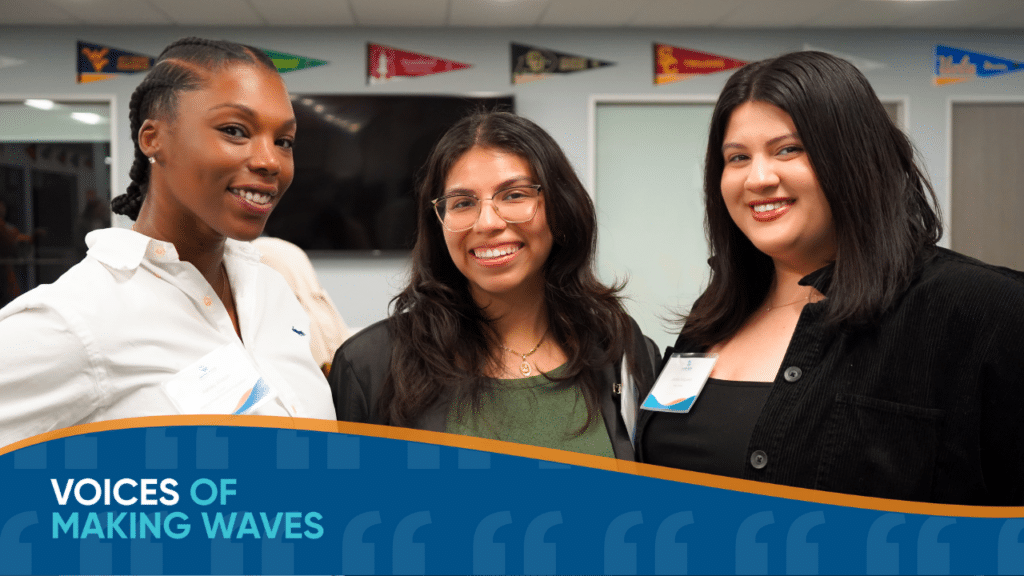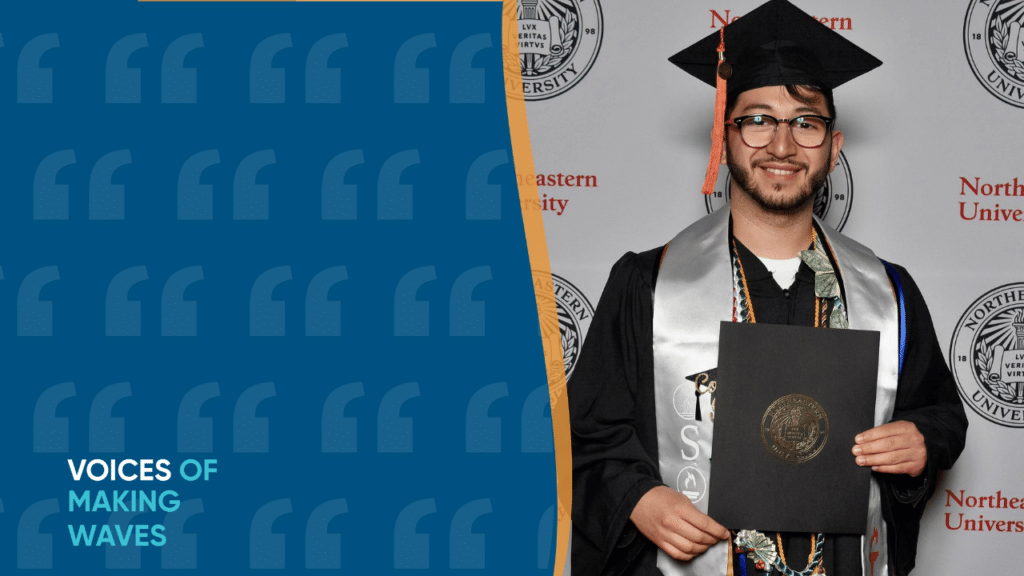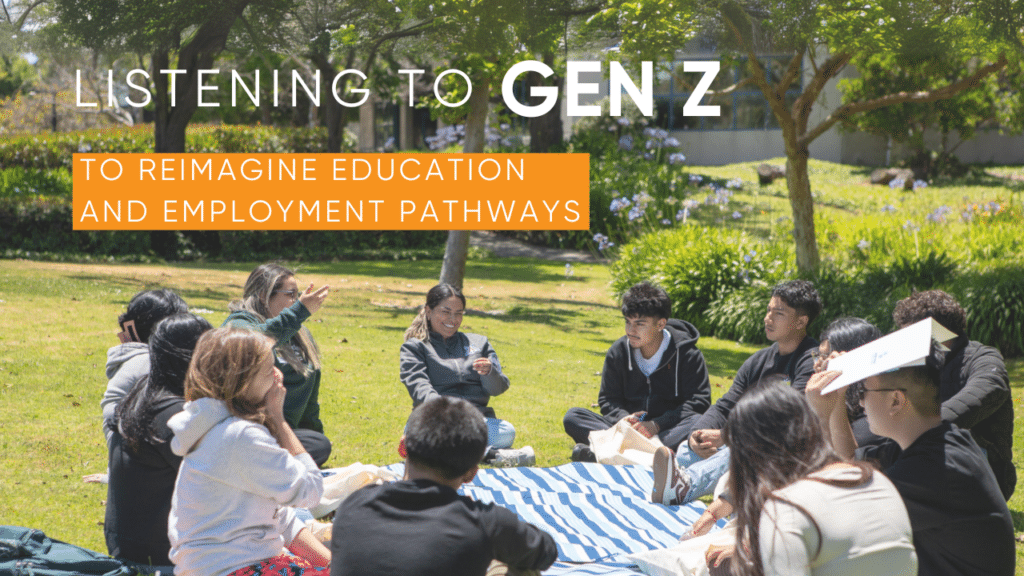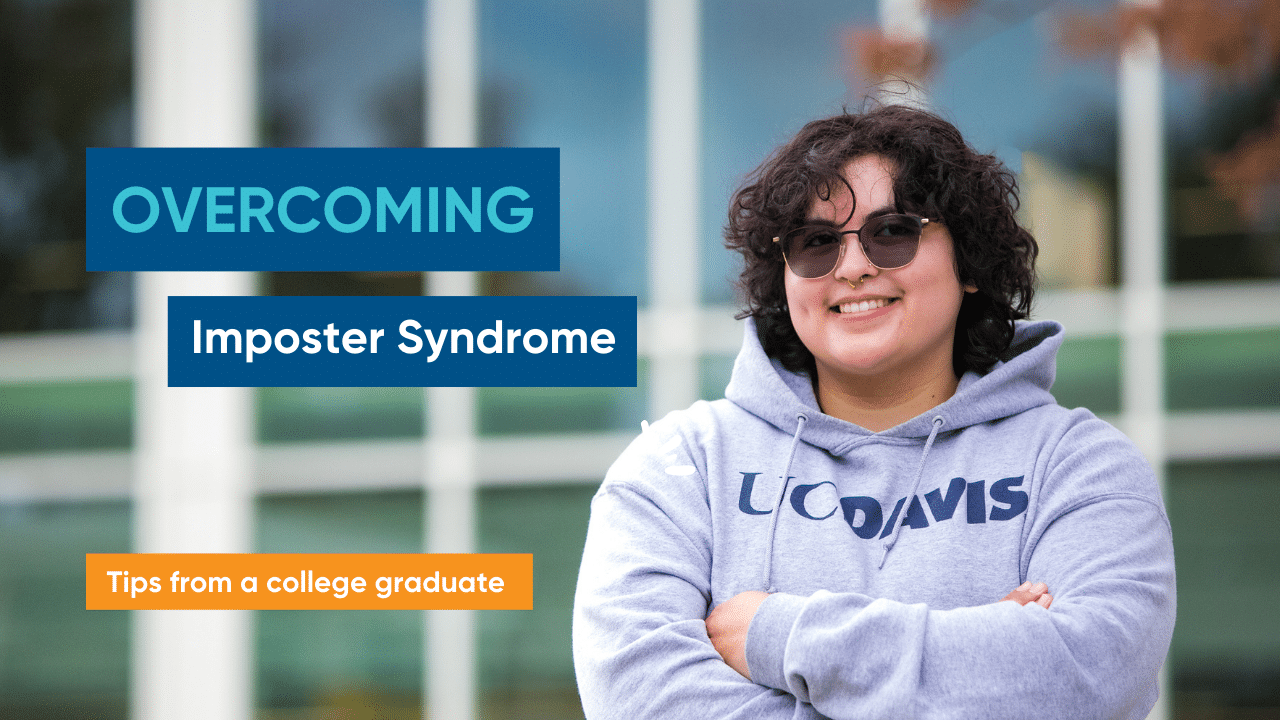
Three Ways to Overcome Imposter Syndrome in College
by Making Waves Education Foundation
Feeling out of place? Do you feel like you somehow slipped through college admissions? You may be experiencing imposter syndrome.
“I didn’t feel like I belonged in a higher education setting,” shared Alejandro Diaz, a Wave-Maker alumni who experienced imposter syndrome in college.
“During my first year of college, I remember walking in the UC Davis quad and feeling the light breeze… the only thing I thought was, ‘I don’t know how I am going to make it here.’”
What is imposter syndrome?
Merriam-Webster defines imposter syndrome as “the persistent doubt concerning one’s abilities or accomplishments accompanied by the fear of being exposed as a fraud despite evidence of one’s ongoing success.”
For first-generation students and students from low-income backgrounds, imposter syndrome can arise from a sense of not belonging or feeling out of place in an academic environment. This can make them vulnerable to doubting their worthiness and downplaying their achievements in comparison to peers who seemingly possess more resources and opportunities.
“Having come from East Oakland, known for its violence and low-income population, UC Davis felt like a whole other universe,” Alejandro shared.
Imposter syndrome can also have a profound impact on mental health, leading to heightened levels of stress, anxiety, and depression. Self-criticism can erode self-esteem, contributing to a negative self-image.
“Everyone around me seemed smarter or more deserving of their spot and it was hard to convince myself otherwise,” he said.
“I was in a rut. My depression was more apparent than my motivation. I couldn’t imagine myself in college for the next four years. It felt like an eternity.”
Overcoming imposter syndrome is crucial not only for academic and professional success but also for fostering a healthy and resilient mindset. This requires acknowledging your unique experiences, finding a mentor, counseling, or resources to help build self-confidence, recognize your strengths, and further develop your resilience.
Tips from a college graduate on how to overcome imposter syndrome
1. Put yourself out there to build confidence
Look for programs or clubs on campus where you can meet students with similar interests. Campuses have hundreds of clubs to choose from. From first-gen clubs to intramural sports to multicultural clubs to academic clubs, there are many programs to seek out and find where you belong.
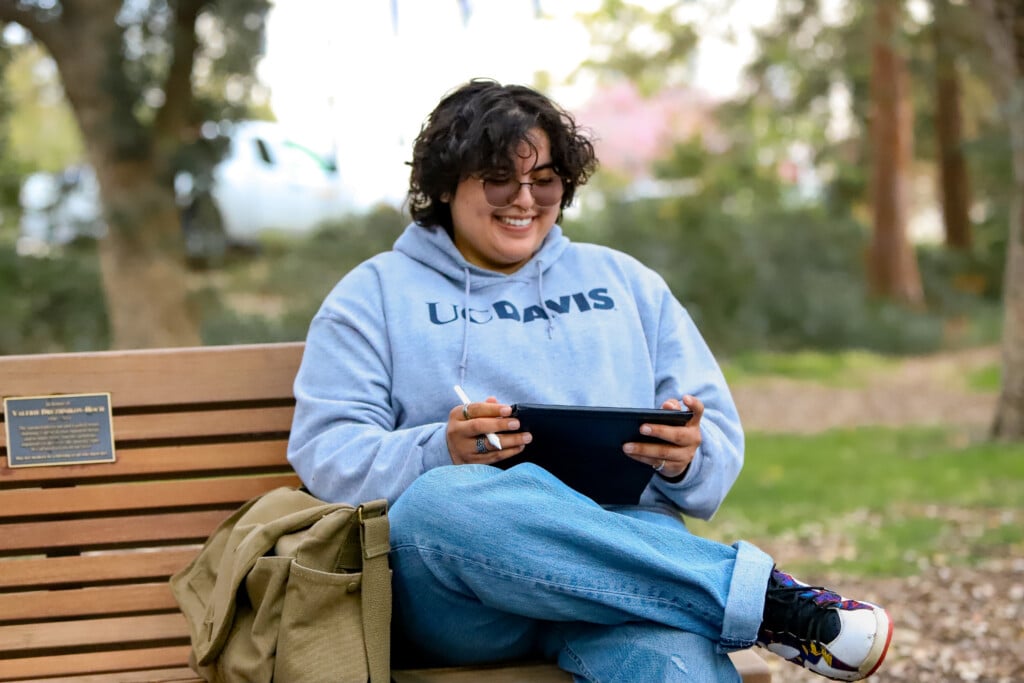
Alejandro found community by joining his campus’ Educational Opportunity Program, or EOP, which has a range of services and programs for first-generation, low-income, and historically disadvantaged students.
“I realized I had to put myself out there and find my place in a university that was initially made to cater to the needs of the privileged.”
“As a low-income, first-generation student, I decided to try hanging around the Equal Opportunity Program center, where I came across a flyer advertising an internship,” shared Alejandro.
“The voice in my head that told me I wasn’t good enough to apply was loud, but through my love for writing, I was able to turn it down just enough to apply,” he added.
“After multiple nerve-wracking interview phases, I got the internship! Not only did this internship help me find my community, but it also gave me the confidence I needed to feel that I belonged at UC Davis.”
“While finding the motivation to put yourself out there may seem impossible when in the grasp of depression, it helped me to know that I wouldn’t be in this rut forever,” shared Alejandro, who also earned and completed a marketing and storytelling internship with Making Waves Education Foundation during his senior year of college.
2. Find a trusted mentor
Whether it’s someone more senior in your major, an alum, or someone in a field in which you’d like to work, mentors can help you navigate your college journey. Mentors can offer advice, share stories about their own experiences, and recommend resources.
During the winter of his first year in college, Alejandro was navigating remote learning during the pandemic and was in and out of the hospital dealing with a non-covid-related illness. He realized due to all the missed classes, he was at risk of failing, and worried about the impact on his transcript and ultimately his future.
Alejandro needed guidance and advice and found it in his Making Waves college coach as a part of the college and career success program.
“I couldn’t roll myself up into a ball and wait for the challenging times to pass like I wanted,” he said.
“I needed to figure out my next steps and figure out what failing classes meant in the long run. I reached out to my college coach at Making Waves.”
“Together, we decided that my best move was to change all my classes to pass/not pass so that it wouldn’t affect my GPA. While it would put me on academic probation, my GPA would be safe, my financial aid would stay mine, and my health was put first,” he shared.
3. Ask for help
You don’t have to battle with imposter syndrome alone.
Whether it’s dropping in for a tutoring session, scheduling time with an academic advisor, or making an appointment with a counselor, ask for help when you need it.
“By reaching out for help, some of the weight was taken off my shoulders, making it easier to carry,” Alejandro shared.

“I encourage you to do the same and ask for help when you need it. Whether you need help with schoolwork or your mental health, I hope you build the courage to ask. I know it’s scary and may feel pointless, but asking for help is a huge step in the right direction.”
“Now, I officially graduated this past spring. The days I never saw myself getting to are the ones I’m living,” he shared.
“I am in a better mental state than when I first started college. I no longer watch the leaves, but I dance with them in the elegant manner they do.”
“I have discovered myself in many ways and I’m still learning. I never gave up, I never stopped pushing, and I began to realize that I belonged and deserved to be here just as much as everyone else,” Alejandro shared.
“While this is only a snippet of my experience, I hope that my sharing allows you to take actions that help you navigate your journey through college.”
You deserve to be here
While imposter syndrome is challenging to dismiss, do not lose sight of the fact that you are worthy, and any room or place you’re invited to is because you deserve to be there, just as much as everyone else.
If you face a roadblock, remember you have support systems around you to give you a lift, whether it’s Making Waves, friends, coaches, mentors, or family!
ABOUT MAKING WAVES Education FOUNDATION
At Making Waves, we are committed to educational equity. Making Waves Education Foundation is a Bay Area nonprofit that supports Making Waves Academy – a public charter school with more than 1,100 5th through 12th grade students – and leads college and career programming with more than 430 college students.
Knowing the opportunities that come with a college degree, we partner with historically underrepresented and underserved students to help make college affordable and graduation attainable. Centering the journeys of our students, our personalized approach includes college and career coaching, scholarships, and financial planning.
Our alumni network includes more than 730 college graduates, who earn their degrees and land jobs at more than twice the rate of their first-generation, low-income peers, with 85% graduating debt-free.

